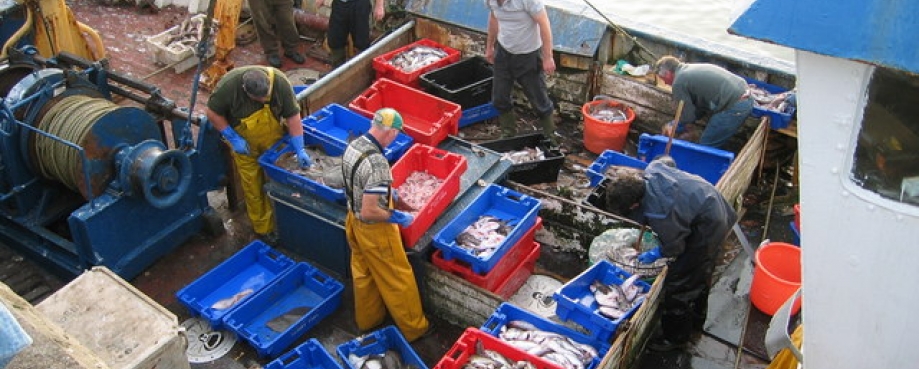
The fishing industry in the United Kingdom relies on migrant fishers, often from the Philippines, Ghana, and Indonesia. Workers from these countries currently have no automatic legal entitlement to work in the UK. At present a legal loophole allows transit visas to be used to recruit workers. This leads to exploitation and unsafe working conditions.
Transit visas were designed to allow seafarers to join a vessel working in international waters. Fishing vessel owners are using these visas on the basis that their vessels are “wholly or mainly” outside of UK territory, which is defined as more than 12 nautical miles from shore.
A report published on 16 May 2022 by ETI member, the International Transport Workers Federation (ITF) ‘A One Way Ticket to Labour Exploitation: How Transit Visa Loopholes are Being Used to Exploit Migrant Fishers on UK Fishing Vessels’ focuses the transit visa loophole and the impacts its having on migrant fishers.
Transit visas:
- Are intended for seafarers in transit – not for fishers living and working in the UK.
- Make fishers unsure about immigration status and gives rogue employers a lever for manipulation.
- Requires a contract with one named vessel, which reduces fishers’ ability to remove themselves from an exploitative working environment.
- Stop fishers speaking out for fear of blacklisting or deportation and inhibits the reporting of safety issues or accidents at sea.
- Requires contracts that stipulate a monthly wage – less than UK nationals and typically around £1,000 per month > creating an unfair and unsustainable two-tier workforce.
‘Letting exploitation off the hook? Evidencing labour abuses in UK fishing’ published by the University of Nottingham on 18 May 2022 provides detailed analysis based on the testimonies of migrant workers in the UK fishing industry painting a picture of the need for industry wide change.
The Ethical Trading Initiative joins its members in requesting the following actions:
- Phasing out the use of transit visas and developing an appropriate revised skilled worker visa for migrant fishers, which is linked to the provision of mandatory safety training in English, that is suitable for working on fishing vessels.
- UK flagged fishing vessels should require workers to have a work permit/visa instead of a transit visa – and workers on UK flagged vessels departing from and returning to UK ports should be afforded the rights of working in the UK – including minimum wage.
- Regularising and harmonising migrant journeys from their country of origin to enable their fair and safe employment – alongside the regulation of crewing agencies in the labour sending countries.
- Implementing reporting and data collection regarding the extent that migrant fishers are employed in the UK.
ETI supports workers, unions and business working together to find solutions to both workplace and industry wide challenges such as those detailed in the above reports.
...
Seafood Ethics Action Alliance have also released a statement on this issue: Conditions in UK fishing. A number of ETI members are also members of SEA Alliance.
